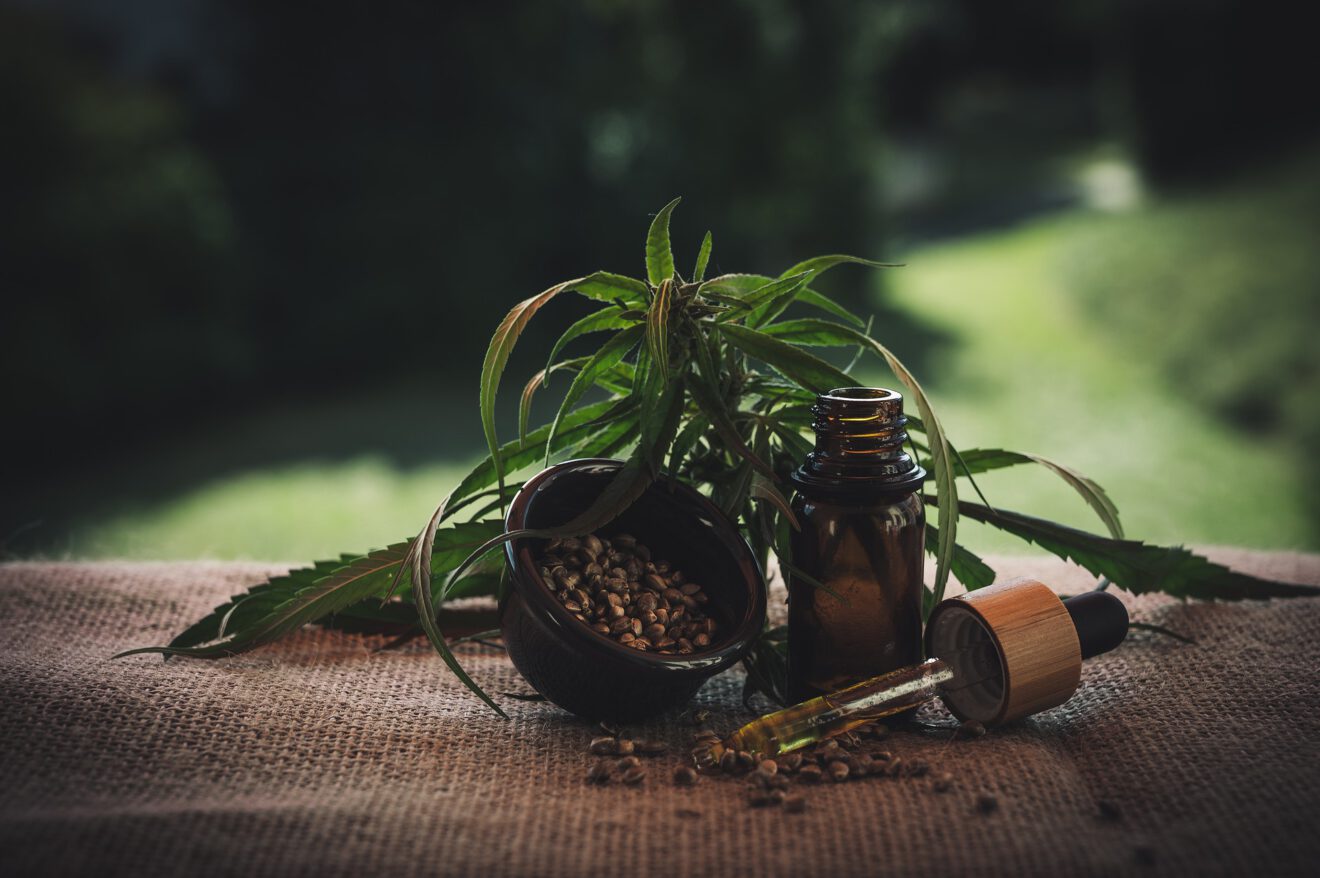There is ever-growing buzz around cannabidiol-infused products ranging from body creams to beverages to snack foods. Items containing CBD are said to decrease anxiety, aid sleep and relieve pain, and food retailers and manufacturers are increasingly embracing the ingredient. There remain hurdles, however, to widespread acceptance and understanding among consumers.
Issues surrounding CBD
While many consumers are interested in CBD-infused products, there are still misconceptions about the ingredient itself. According to findings from the Consumer Brands Association, 62% of Americans have heard of CBD, but most are still confused about what it actually is.
Of those 62% who have heard of CBD, the association found that 39% believe it is just another word for marijuana and 54% believe it will intoxicate users, when in fact it is defined as “active ingredient in cannabis derived from the hemp plant” and causes no high at all.
Regulation of the substance is also an issue that has caused confusion and misunderstanding among consumers, and the Consumer Brands Association asserts that “(f)ederal government regulation and oversight must move at the same pace as the rapidly expanding CBD market.”
While many regulatory bodies are attempting to make moves toward cohesive rules about products containing CBD, there remains a patchwork of regulations throughout the country. While hemp-derived CBD has been federally legal for two years, some states still do not allow sales of certain types of CBD products — mainly in the food and beverage category.
To bring clarity to the issue, a piece of legislation was introduced in the US House of Representatives in September that aims to “make hemp, cannabidiol derived from hemp, and any other ingredient derived from hemp lawful for use under the Federal Food, Drug, and Cosmetic Act as a dietary ingredient in a dietary supplement, and for other purposes.”
Products, concepts come to market
Despite misconceptions and legislative issues, Nielsen expects the hemp-derived CBD industry to be a $6 billion business by 2025. In fact, the number of consumers who have tried CBD products in any form increased during the pandemic, rising from 20% in May to 25% in June, according to Darren Seifer, food and beverage industry analyst at The NPD Group.
Many of the consumers who seek out CBD-infused products are looking to treat ailments and often have a “food-as-medicine mentality,” Seifer explained. Among people who have used CBD, 30% said it was in food form, 40% used it in oil or extract form and another one-third said they used it as a lotion or cream, Seifer said.
Seifer asserts that snacking items are a main avenue for consumers to try CBD, especially items such as brownies, cookies, gummies or candy. Coffee and tea are also among food items ripe for CBD inclusion, Seifer said.
In order to meet today’s demand, manufacturers and food retailers alike are finding ways to make CBD products accessible to these shoppers and others looking to try them. A Ball’s Price Chopper store in Kansas City, Mo., for example, recently opened a store-within-a store concept that focuses on CBD products. The 500-square-foot concept store is part of a partnership with CBD retailer American Shaman and offers several types of products.
“Our shoppers have indicated a demand for CBD products in our aisles and we believe they will enjoy the store-within-a-store model because it maximizes convenience while upholding the standard of quality shopping and products they have come to expect from Ball’s,” Scott Bayne, vice president of sales and marketing for Ball’s Food Stores, told Supermarket News.
Fresh Thyme Farmers Market expanded its assortment of CBD products earlier this year and now stocks more than 200 types of items including topicals and dietary and pet supplements. The retailer counts CBD supplements and body care among its fastest-growing categories, and Senior Director of Grocery & Natural Living Jonathan Lawrence told Food Navigator that the products have brought in new customers and higher basket prices.
“From a basket building standpoint, has CBD been good for us? Absolutely, average retail on a supplement product was roughly $12 four years ago and today it’s closer to $15 and that has a direct correlation with the price point and the kind of CBD products we’re selling,” Lawrence said.
While Kroger does not yet sell CBD food items, the grocer already sells topical products, as does Gelson’s Market, which recently rolled out CBD-infused topical and beauty products from HempMeds. Distributor KeHe also expanded its relationship with The Alkaline Water Company, which produces CBD topical products and CBD-infused waters.
Moving forward
While many manufacturers and retailers have yet to get into the CBD game, several have expressed interest in joining the fray once the FDA makes a definitive ruling on products that include the ingredient. Ben & Jerry’s, for example, has a CBD statement on its website that reads, in part, “We are open to bringing CBD-infused ice cream to your freezer as soon as it’s legalized at the federal level.”
Large retailers including Target and Walmart are reportedly in talks to carry CBD products when the time is right, with a Target spokesperson telling the New York Post, “Like many companies, we know there is consumer interest in CBD products, and the conversation is evolving quickly. We’re following the discussion, but currently don’t have any immediate plans to carry them.”
As products do come to market, Seifer points to partnerships between manufacturers and retailers, such as private label programs, as a means to find success in the category and meet different need states of consumers.
Related stories:
- Datassential’s 10 food trends to know in 2021
- 2020 year in review: The return of the great American grocery store
- 5 alcoholic beverage trends to know in 2021
_____________________________________
If you enjoyed this article, you can sign up for Consumer Brands SmartBrief, FMI dailyLead or Restaurant SmartBrief to get news like this in your inbox. For even more great news content, sign up for any of SmartBrief’s 275+ free email newsletters today, free.
